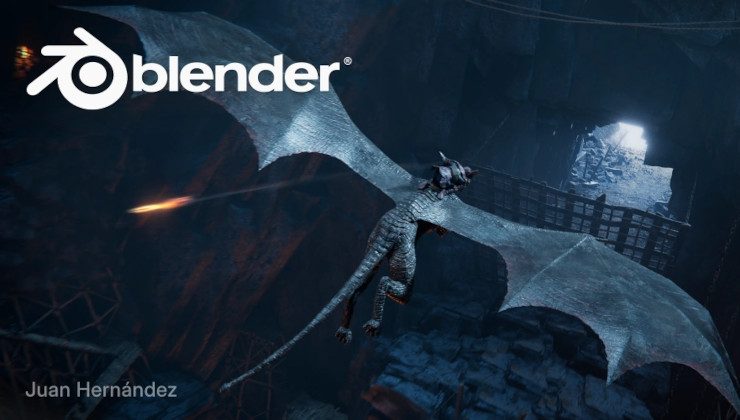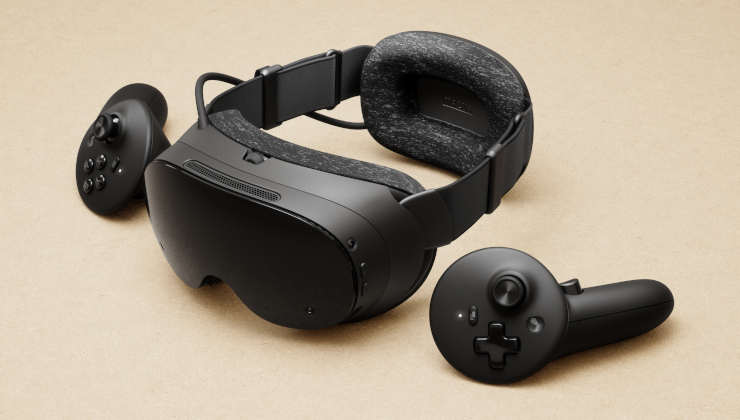Developer Nate Graham has highlighted more recent work for the KDE Plasma desktop environment (the one the Steam Deck will come with) and it's all sounding great.
Continuing their effort to prevent breakage, just like stopping the Discover software centre removing your desktop, Discover now cannot uninstall itself. That's right, previously Discover was able to end up removing itself from your desktop! Now though, it won't as there's new checks in place.
Discover is also seeing something of a UI overhaul now too for application pages. So when you click on something in Discover you're interested in installing, you'll now get clearer information on each app like the size and version information.
It's really nice to see so much effort being put into Discover, since that is the way users are supposed to find and install apps on Plasma. Even more fixes came in like it no longer crashing when you install or uninstall more than one Flatpak app at once, showing the correct size for "very very large" packages, a better screenshot pop-up for applications when you're viewing their page and the list goes on.
Wayland improvements continued apace too like Kate (the text editor) no longer flashes when you hit Ctrl+S to save your changes and dragging-and-dropping various things to XWayland apps no longer sometimes makes them stop accepting clicks until the system is restarted.
Dolphin (the file manager) improvements coming along too like it no longer crashing if you cancel an archiving job in the middle that was initiated from one of Dolphin’s context menu "Compress" items. The list goes on, as Graham mentions the blog posts only scratch the surface of the working going into KDE Plasma.
Quoting: STiAT[edit] they even have a steam repo... with nvidia and steam I'm well done, I think I can switch properly to their repos. They even have Spotify. Steam, Spotify, NVidia are usually my software issues ... all covered. Nice.The multimedia repo also contains all smaller repos, so just including this one should be sufficient for your use case.
PS: Spotify is also on flathub/flatpak, that’s even more convenient if you dare to use flatpak :)
Last edited by jens on 6 Feb 2022 at 8:53 am UTC
Quoting: amataiYeah, Plasma keep breaking thing on my computer so that I don't have to break them I suppose.I keep giving KDE another chance every few months, but it's just never been a good experience for me. I love a lot of the KDE ecosystem, but for some reason basic stuff that just works in GNOME, like pairing a Bluetooth gamepad or, like, playing audio in Firefox, does not work in KDE on the same machine for no reason I can easily discern. And then, when I go back to GNOME, I have to spend extra time fixing the stuff KDE broke that it shouldn't have been able to break.
At least for me, the most common breakage is during updates, which would be negated by the Steam Deck's image update plan. So it's not a big deal. Besides all it really needs to do is display Steam, pretty sure all the DE's can do that with no fuss. Everything else is extra, in a sense.
Quoting: slaapliedjeI would think most of the software uses something sensible one as that's easier than to invent something new. There are quite odd ones though. TeX for example adds digits to π. Also can't even assume that version number increases. Wikipedia mentions SmartEiffel that has decreasing version number.Quoting: NanobangFlashy, fast, and flexible. Yeah, I can see why Valve might've chosen it for the Steam deck.Yeah, I think more and more developers are realizing that arbitrary numbers for their software is kind of pointless. I think that the trend toward YY.MM.patch_level is quite useful. On the other hand, you have people who misinterpret what CentOS was doing with their 7.9.2009... as that's Major.Minor.YYMM. Someone tried to explain to me that they don't have point releases anymore and just use the year/month... Doesn't help that RHEL doesn't follow that versioning... Anyhow, just a bit of a rant as I've ran into this...
I'm strangely thrilled that the Discover upgrade will be including version dates.
I think knowing a version number may be helpful, but knowing the age of that version is immediately useful when I'm considering a bit of software.
Kudos KDE!
FreeBSD has actually mechanism that can be used when the whole scheme changes
No wonder we need a dialog that displays also date :tongue:
Quoting: JarmerI'm surprised the Steamdeck team chose KDE for the DE, and not something simpler and less resource heavy like XFCE. Being that it's a battery powered device (sometimes) I would think they'd want to squeeze every single compute cycle they could and isn't KDE the heaviest DE out there?It's really not surprising. KDE for some reason has the reputation of being a "bloated" desktop environment, but in reality, it's a very mature and well optimized piece of software that is highly configurable.
Quoting: areamanplaysgameI've been using KDE for a long time and I've never had any trouble connecting stuff via Bluetooth or hearing audio in Firefox. And even if I did have such issues, it'd be a given that they wouldn't be KDE problems bur rather a problem with the Bluetooth stack or the device drivers in the former case, and Firefox or the sound stack in the latter; so I'd begin my investigation with them.Quoting: amataiYeah, Plasma keep breaking thing on my computer so that I don't have to break them I suppose.I keep giving KDE another chance every few months, but it's just never been a good experience for me. I love a lot of the KDE ecosystem, but for some reason basic stuff that just works in GNOME, like pairing a Bluetooth gamepad or, like, playing audio in Firefox, does not work in KDE on the same machine for no reason I can easily discern. And then, when I go back to GNOME, I have to spend extra time fixing the stuff KDE broke that it shouldn't have been able to break.
Not to mention, if you have both Gnome and KDE installed on the same system and/or sharing configuration folders, if KDE breaks stuff for Gnome then maybe Gnome also breaks stuff for KDE and maybe that's where the root of your problems lies. Have you tried using KDE on a clean system?
Quoting: JarmerI'm surprised the Steamdeck team chose KDE for the DE, and not something simpler and less resource heavy like XFCE. Being that it's a battery powered device (sometimes) I would think they'd want to squeeze every single compute cycle they could and isn't KDE the heaviest DE out there?Well, apparently they wanted the best balance between technologically advanced, user friendly and flexible; and there is nothing out there that can beat KDE on all these areas at the same time. And no, KDE hasn't been a resource hog since ages (if it ever was in the first place), I've seen metrics that show it as consuming less than 180MB on boot on a fresh system.
Also, XFCE does not (and probably will not in the foreseeable future) support Wayland.
Quoting: Mountain ManQuoting: JarmerI'm surprised the Steamdeck team chose KDE for the DE, and not something simpler and less resource heavy like XFCE. Being that it's a battery powered device (sometimes) I would think they'd want to squeeze every single compute cycle they could and isn't KDE the heaviest DE out there?It's really not surprising. KDE for some reason has the reputation of being a "bloated" desktop environment, but in reality, it's a very mature and well optimized piece of software that is highly configurable.
Quoting: NociferSo I was watching a video last night that was suggesting that instead of recommending distributions to potential new users, we should be suggesting the Desktop Environment. I agree partially. Each DE seems to have a 'best in class' distribution behind it.Quoting: areamanplaysgameI've been using KDE for a long time and I've never had any trouble connecting stuff via Bluetooth or hearing audio in Firefox. And even if I did have such issues, it'd be a given that they wouldn't be KDE problems bur rather a problem with the Bluetooth stack or the device drivers in the former case, and Firefox or the sound stack in the latter; so I'd begin my investigation with them.Quoting: amataiYeah, Plasma keep breaking thing on my computer so that I don't have to break them I suppose.I keep giving KDE another chance every few months, but it's just never been a good experience for me. I love a lot of the KDE ecosystem, but for some reason basic stuff that just works in GNOME, like pairing a Bluetooth gamepad or, like, playing audio in Firefox, does not work in KDE on the same machine for no reason I can easily discern. And then, when I go back to GNOME, I have to spend extra time fixing the stuff KDE broke that it shouldn't have been able to break.
Not to mention, if you have both Gnome and KDE installed on the same system and/or sharing configuration folders, if KDE breaks stuff for Gnome then maybe Gnome also breaks stuff for KDE and maybe that's where the root of your problems lies. Have you tried using KDE on a clean system?
Quoting: JarmerI'm surprised the Steamdeck team chose KDE for the DE, and not something simpler and less resource heavy like XFCE. Being that it's a battery powered device (sometimes) I would think they'd want to squeeze every single compute cycle they could and isn't KDE the heaviest DE out there?Well, apparently they wanted the best balance between technologically advanced, user friendly and flexible; and there is nothing out there that can beat KDE on all these areas at the same time. And no, KDE hasn't been a resource hog since ages (if it ever was in the first place), I've seen metrics that show it as consuming less than 180MB on boot on a fresh system.
Also, XFCE does not (and probably will not in the foreseeable future) support Wayland.
If you want to suggest Gnome, I would likely show them Fedora or Debian. If you want to show them a customized Gnome, Pop or Ubuntu.
If you want to suggest KDE, maybe OpenSUSE? Or Debian.. I mean Debian is pretty much a good representation of 'this is how the DE looks without customization.' But there are definitely Distros that specialize in specific DEs, so part of the issues with anything related like audio or Bluetooth can come down to the packaging of that DE by that particular distribution's maintainers.
Quoting: Mountain ManKDE for some reason has the reputation of being a "bloated" desktop environmentKDE 4 had the same problem as early Gnome 3: it had bugs that affected performance, which led people to assume that it was too heavy for their machine, and it's got lots of options so it must be heavy, right? They fixed the bugs and KDE 5 is an entirely different beast to KDE 4, but once you've decided that something's a particular (and unappealing) way, it's very unusual for anyone to check it again.
Quoting: jensI am not a friend of flatpak (in that case, not of snap or any other similar containering too) to be true. I use it if I must... but that's about it. It does nothing for security, and I do not see why I'd need an abstraction layer to run Spotify unless it's spotify themselves maintaining it.Quoting: STiAT[edit] they even have a steam repo... with nvidia and steam I'm well done, I think I can switch properly to their repos. They even have Spotify. Steam, Spotify, NVidia are usually my software issues ... all covered. Nice.The multimedia repo also contains all smaller repos, so just including this one should be sufficient for your use case.
PS: Spotify is also on flathub/flatpak, that’s even more convenient if you dare to use flatpak :)
I see it as additional dependencies, an additional system, I see it as additional usage of libraries, additional RAM-Uage, worse integration.... Flatpaks often still use libraries which are known to have security issues due to lack of updates.
So if I can avoid them I do.. but I'm aware that we're running this direction (ostree for the system, flatpacks for the apps). But I hope that's some years off and until then it runs, works and integrates nicely :D.
Fedora is basically preparing for that switch already with silverblue, but I hope to get a few years out of "normal" fedora yet though, and I only have to switch when it's really well integrated and the corner cases covered.
Last edited by STiAT on 6 Feb 2022 at 10:28 pm UTC
Quoting: JarmerI'm surprised the Steamdeck team chose KDE for the DE, and not something simpler and less resource heavy like XFCE. Being that it's a battery powered device (sometimes) I would think they'd want to squeeze every single compute cycle they could and isn't KDE the heaviest DE out there?I used both on the same system:
XFCE on Manjaro: ~700-800 MB RAM
KDE on OpenSuse (TW): ~1 - 1.1 GB RAM
Pretty comparable, I'd say. As much as I prefer the simpler XFCE, KDE does have more modern features and support.
Quoting: Guestfirst impression here is more important that slight better performance.^^^This soooooo much!!!!^^^
If the first batch don't nail it in one hit with the users/press the steam deck will fall flat on it's arse ! Irrelevant of what distro/DE/ or whatever they use. How good it becomes at a later date will not matter.
This is where I feel proton could be the achilles heal if Valve are not completely on it!
I am hoping that game devs at least do native ports targeted/optimized at the deck as if it works on the deck it's a safe bet that other distros/hardware will work fine too.
Quoting: areamanplaysgameI keep giving KDE another chance every few months, but it's just never been a good experience for me. I love a lot of the KDE ecosystem, but for some reason basic stuff that just works in GNOME, like pairing a Bluetooth gamepad or, like, playing audio in Firefox, does not work in KDE on the same machine for no reason I can easily discern. And then, when I go back to GNOME, I have to spend extra time fixing the stuff KDE broke that it shouldn't have been able to break.As mentioned above, you cannot judge KDE if you installed it over top of a default Gnome setup. This is true the other way around, too.
Quoting: CatKillerYeah, Gnome 3 and KDE 4 both were very much "We're not ready yet!" for the first few point releases, but distributions packaged and shipped them anyway...Quoting: Mountain ManKDE for some reason has the reputation of being a "bloated" desktop environmentKDE 4 had the same problem as early Gnome 3: it had bugs that affected performance, which led people to assume that it was too heavy for their machine, and it's got lots of options so it must be heavy, right? They fixed the bugs and KDE 5 is an entirely different beast to KDE 4, but once you've decided that something's a particular (and unappealing) way, it's very unusual for anyone to check it again.
Quoting: no_information_hereThey both do things to various settings, like mime types for programs. Though KDE seems to be a little worse at 'oh, you loaded me last, I'm changing your settings!' than Gnome does. Example of this is Okular, log into KDE, open something that opens Okular. Log out, log into Gnome, your default PDF viewer will now be Okular. If you change it to Evince in Gnome, going back to KDE will still want Okular.Quoting: areamanplaysgameI keep giving KDE another chance every few months, but it's just never been a good experience for me. I love a lot of the KDE ecosystem, but for some reason basic stuff that just works in GNOME, like pairing a Bluetooth gamepad or, like, playing audio in Firefox, does not work in KDE on the same machine for no reason I can easily discern. And then, when I go back to GNOME, I have to spend extra time fixing the stuff KDE broke that it shouldn't have been able to break.As mentioned above, you cannot judge KDE if you installed it over top of a default Gnome setup. This is true the other way around, too.
(Please note that example of Okular may be the incorrect one, but it's something similar to that).
Quoting: slaapliedjeWellll, not all distributions. That's about when Mint got going with Cinnamon and Mate, I think in good part because Clem thought Gnome 3 sucked.Quoting: CatKillerYeah, Gnome 3 and KDE 4 both were very much "We're not ready yet!" for the first few point releases, but distributions packaged and shipped them anyway...Quoting: Mountain ManKDE for some reason has the reputation of being a "bloated" desktop environmentKDE 4 had the same problem as early Gnome 3: it had bugs that affected performance, which led people to assume that it was too heavy for their machine, and it's got lots of options so it must be heavy, right? They fixed the bugs and KDE 5 is an entirely different beast to KDE 4, but once you've decided that something's a particular (and unappealing) way, it's very unusual for anyone to check it again.
Quoting: Purple Library GuyHa, Mint literally spawned from Gnome 3's creation. It didn't exist for it to be there to make the decision too early to upgrade to Gnome shell. Of course that still left us with the split of Mate and Cinnamon (I can never remember which decided they wanted Gnome 2, but with GTK2 and one wanted GTK3). But aren't they both now based on GTK3/4?Quoting: slaapliedjeWellll, not all distributions. That's about when Mint got going with Cinnamon and Mate, I think in good part because Clem thought Gnome 3 sucked.Quoting: CatKillerYeah, Gnome 3 and KDE 4 both were very much "We're not ready yet!" for the first few point releases, but distributions packaged and shipped them anyway...Quoting: Mountain ManKDE for some reason has the reputation of being a "bloated" desktop environmentKDE 4 had the same problem as early Gnome 3: it had bugs that affected performance, which led people to assume that it was too heavy for their machine, and it's got lots of options so it must be heavy, right? They fixed the bugs and KDE 5 is an entirely different beast to KDE 4, but once you've decided that something's a particular (and unappealing) way, it's very unusual for anyone to check it again.
We should really be all VERY thankful for the Gnome developers! Without them we wouldn't have Mint Linux, Mate, Cinnamon, Budgie, etc. Like seriously, how many DEs were created because people hated Gnome Shell!
Last edited by slaapliedje on 9 Feb 2022 at 3:59 am UTC
Quoting: no_information_hereIf it can't perform in that kind of setup, then why is installing more than one DE an option? I have literally never once anywhere seen anyone discourage doing this before.Quoting: areamanplaysgameI keep giving KDE another chance every few months, but it's just never been a good experience for me. I love a lot of the KDE ecosystem, but for some reason basic stuff that just works in GNOME, like pairing a Bluetooth gamepad or, like, playing audio in Firefox, does not work in KDE on the same machine for no reason I can easily discern. And then, when I go back to GNOME, I have to spend extra time fixing the stuff KDE broke that it shouldn't have been able to break.As mentioned above, you cannot judge KDE if you installed it over top of a default Gnome setup. This is true the other way around, too.
Quoting: GuestNot linux user willThis might be true for a PC gamer who builds PCs, etc. The average console gamer, and even a less experienced PC gamer, is unlikely to install a new OS. The overwhelming majority of PC users never do.
1. switch to windows
Quoting: areamanplaysgameMany don't know what an OS is.Quoting: GuestNot linux user willThis might be true for a PC gamer who builds PCs, etc. The average console gamer, and even a less experienced PC gamer, is unlikely to install a new OS. The overwhelming majority of PC users never do.
1. switch to windows















 How to setup OpenMW for modern Morrowind on Linux / SteamOS and Steam Deck
How to setup OpenMW for modern Morrowind on Linux / SteamOS and Steam Deck How to install Hollow Knight: Silksong mods on Linux, SteamOS and Steam Deck
How to install Hollow Knight: Silksong mods on Linux, SteamOS and Steam Deck